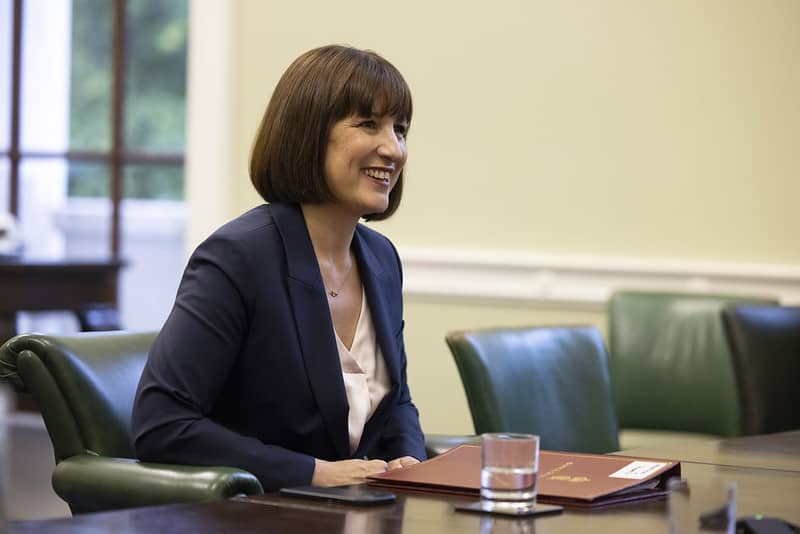"Worse than Covid": Hospitality Crumbles Under Reeves
- Written by: Gary Howes

Rachel Reeves. Picture by Kirsty O'Connor / Treasury.
The hospitality sector is seeing a raft of closures, with a leading figure in the sector saying more businesses will go under than was the case during the Covid pandemic.
"It’s only 7th Jan and I’m already seeing a raft of Hospitality closures this morning," says Sacha Lord, Night Time Economy Adviser for Greater Manchester and Chair of the NTIA.
Lord says he is "sadly predicting we will see more at the start of this year, than we did during Covid."
Responding to Lord's observations, The Scottish Hospitality Group confirmed the trend and "unfortunately we will see more of across the year."
"Many decided to take Christmas & NY and then call time. The UK budget have been a nail in the coffin that the sector didn’t need during its slow recovery," said the Group.
The observations follow data from S&P Global, whose survey of the services sector, of which hospitality is the backbone, showed growing pressures.
The S&P Global Services PMI from December said firms widely commented on growth headwinds from fragile consumer confidence, tighter corporate budgets, and cutbacks to non-essential spending.
"Overall, the UK December PMIs paint an unpleasant picture of sluggish activity trends, notably deteriorating employment and strengthening inflationary pressures, all of which appear to have been exacerbated by the policy to increase employer National Insurance Contribution (NICs) rates announced at the budget," says Abbas Khan, an economist at Barclays in London.
The cost of employing a full-time worker on minimum wage will rise by £2,367 this year to more than £24,800 per person, with more than £5,000 of that going to the Treasury, according to a new analysis by the Centre for Policy Studies (CPS).
21.3% of the money businesses pay on employing minimum wage staff will go to the Treasury in taxes, up from 17.5% last year.
Reeves’s decision to increase the rate of employer National Insurance contributions and raise the threshold at which it is paid disproportionately hits those on lower wages.
The changes mean that an employer's National Insurance bill for each full-time employee on minimum wage will surge by 60% this year, rising from £1,617 to £2,583.
The Chancellor’s decisions will raise an extra £25BN in taxes from businesses by 2029, which is described as one of the largest single tax increases in British history.
"An economic crisis in the UK is looming," says economist Andrew Sentance, a former member of the Bank of England's Monetary Policy Committee.
Lord says, "the unexpected extra tax burden of an increase in NI and Business Rates increase, will be the straw that broke the camels back."
"Many government meetings are taking place this month, but sadly, the writings are already on the wall for many," he adds.
Lord backed the Labour Party ahead of the July election, having taken into consideration Labour's numerous overtures to businesess.
However, Reeves' and Prime Minister Keir Starmer's strategy on assuming power was to talk down the economy and create a narrative to justify a massive tax raid.
The warnings hit sentiment, a key driver of the animal spirits that are crucial to investment and economic growth.
Sentiment did not recover following the October budget when the final details of the £40BN tax raid were announced, and the economy has flatlined.
Labour inherited an economy that was growing strongly, but by the third quarter, growth had shuddered to a halt at 0.1%, with subsequent monthly GDP readings pointing to 0% growth being likely in the final quarter of the year.



